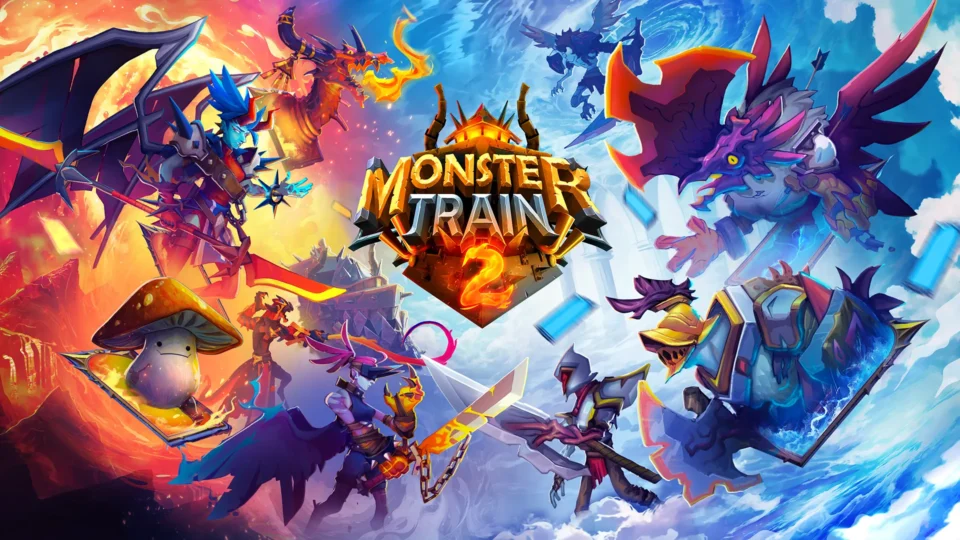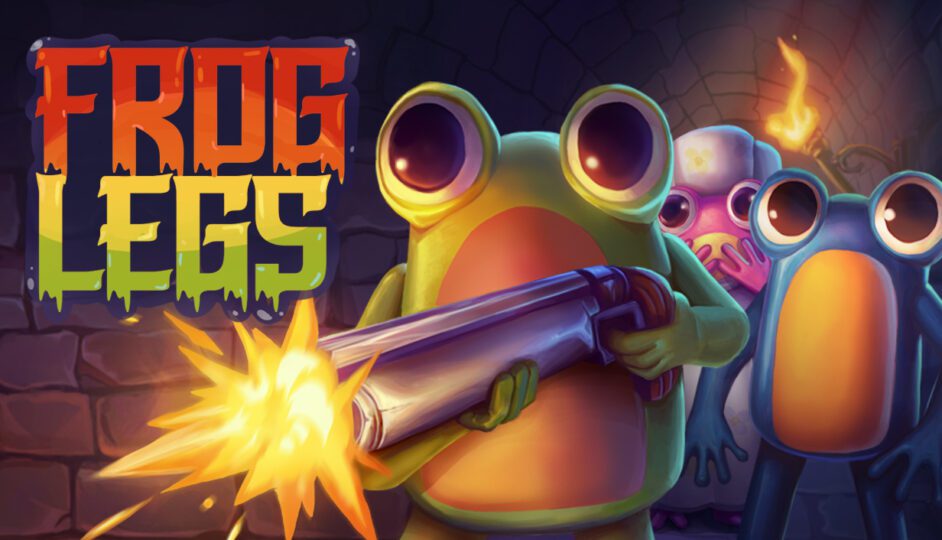Getting this right out of the way up front. This is as spoiler-light as I think I’ve ever made a review. The embargo doesn’t allow discussion beyond a certain date and key other things, but we’ve gone above and beyond that restriction as best I can. The footage has been contained to the demo sections, apart from a few screenshots of menus. Every care has been taken for you to enjoy this game, without having any of the usual Atlus shenanigans spoiled for you. I might end up putting out a more spoiler heavy video at a later date, but it will be clearly marked. If you don’t want to see any footage, then feel free to just listen. If you want to know if this is for you I highly recommend the demo, it’s incredibly generous, gives you around 5 to 6 hours and carries over to the main game. Go play it and then come back. With all that out the way, let’s get this started, because this… is Metaphor: Refantazio.
How do you follow up a game like Persona 5? A title that has been referred to as ‘one of the greatest rpgs of all time’, ‘an unabashed masterpiece’, and ‘unconscionably sublime’ among other things. That’s a tall order. Metaphor: ReFantazio is undoubtedly going to get compared to Persona 5, and Persona in general a lot in reviews, that Persona core is right on show from the very beginning. There’s nothing wrong with that either, it gives players a solid foundation to start from and know what to expect, and afterall, if it’s not broke, why fix it?
Metaphor: Refantazio does away with the modern day stylings for a plot and instead goes for that fantasy monsters and monarchy slice. The king has died, and as such a new successor needs to be named. It’s fine though, he wasn’t doing that bang up of a job anyway as monsters had started to encroach closer and closer to the city walls. Animosity between the tribes is at an all time high and the church is staking a pretty strong claim as to why they should be the next ones to take power.
But things are never that simple. If you’ve played the demo you know what happens next. If you haven’t I’ll simplify it by saying that it’s determined that the will of the people shall decide the next ruler of the land, and so begins a popularity contest ranging from lowly bounty hunters all the way up to the church itself vying for who will be the next king as decided by you… The people.
It’s a great set-up and start, but it is slower. The first few hours lack the punch of previous Atlus games that drop you right into the action. Metaphor is a slow burn in that regard but it’s no less enjoyable, and given that you’re looking at 70 to 80 hours at the low end it’s allowed to take 1 or 2 of those setting the stage. This is a grand epic tale, it needs to introduce the world and the stakes, and it does it flawlessly.
That’s the strongest element in Metaphor. The story and character design in Atlus games is unparalleled and Metaphor is no different. We’re given a backdrop with multiple elements, characters who get their moment to shine, and villains who I adore. My main concern was trying to figure out exactly where the meta story was going or when certain elements would be introduced and what the resulting payoff would entail. Those concerns were all unfounded as Atlus are no stranger to handling heavier themes or using the hooks they set up.
Metaphor is rife with heavier themes some games would shy away from. Tribalism, distrust and systemic racism are on display. You’re dealing with questions about anxiety, identity, purpose, worth, like a midlife crisis lasagne that you then cover with a sauce made of an unhealthy amount of religious overtones. The religious elements are key to the story and are pretty much always on display. The church of Sanctism spreads out to fill the space provided. Blind faith would be an understatement for a religion that uses the word ‘Closerei’ while having you cover your eyes with your hands to pray.
It’s impressive to see a game utilize anxiety and melancholy as integral elements of a game. They’re not just bricks in this house, they’re the foundation it’s built upon. When a character awakens they bury their hand into their chest and rip their heart out. The imagery of exposing ones vulnerabilities, embracing who you are and the path you walk to be able to reach your true strengths is kind of beautiful if you ask me. There’s a lot going on here in this game that I want to talk about, but can’t, as lessons that we could learn from. Or, that you’ll see youtubers making complaint videos about how they’re heavy handed messages, rather than focusing on escapism. As if feeling something while you play a game is sacrosanct.
The character design is phenomenal, shocking I know. Each character feels fleshed out and flawed in their own way. Their personal stories add to their background as you get to explore what makes them tick, and what keeps them up at night. Even side characters are flamboyant overcompensators or grounded in ideals that are ingrained. You end up feeling for these characters and their stories. Strohl, a lordling in name, living in a shadow. Hulkenberg, the loyal knight who failed their mission, are both fantastic. Of course I miss the flair and stupidity of Ryuji, but that doesn’t detract from the strength of these characters. Companions and Allies are utilized to full effect in Metaphor, leveling up your bond with them unlocks new archetypes and passive abilities to aid you in your journey, and it would be easy to dismiss the later characters as you don’t get to spend as much of your time with them, but one of them was easily my favorite in the whole game.
The gameplay itself is also fueled by that Atlus core. Stylish menus, and interface guide you through turn based battles that you should be accustomed to if you’ve played any previous Atlus outing. An element system with resistances and weaknesses add depth to the combat, and a puzzle element as you try to figure out what you’ll need for upcoming encounters and dungeons. The right lineup can make all the difference as difficulty can easily swing suddenly against you with an ambush from an enemy in the overworld, or having an attack be reflected during an encounter. Combat is the only aspect of the game where I end up having any real complaint.
The difficulty spikes can sometimes feel too harsh. There can easily be times where resetting the fight isn’t enough and you’ll find yourself entering an encounter, suffering through it and losing, only to then swap out your archetypes to something different and breeze through the encounter like it was nothing. The expression forewarned is forearmed should be printed out and mounted as a plaque on the wall for every dungeon you enter. I should say I’m not advocating for easier fights, I enjoy difficulty in my games, I just don’t really like the idea of the illusion of difficulty. That the difficulty at times can come from your first attempt being to figure out the weakness, reloading swapping out your archetypes and one salvo-ing the enemy now you have the codes. After finishing the game I also tested out the Storyteller mode to see how it compares and it regrettably feels like a bad implementation of the idea. If you die in Storyteller, you have an option to just straight up revive in a fight. Which sounds like a great idea, except that it revives you at that exact moment. If you are halfway through a boss’s turn, it will finish its turn. I tested it on some bosses and ended up in a weird loop where I was waiting for the last character to die so I could revive the party, but the boss was healing and taking its time, and so the fight ended up dragging on and becoming truly frustrating. In a mode designed to minimize combat and allow you to just enjoy the story, it didn’t achieve that goal at all.
But what tools are given to you to overcome those challenges? I’ve mentioned the term archetypes several times now. Metaphor sees each character coming with a core archetype for them, that you can then unlock for yourself and the rest of the party, allowing you freedom to sculpt your party as you wish. In general RPG terms, archetypes are your classes, Mage, Knight, Warrior, etc. Each one coming with a gorgeous stylised design that you would come to expect from Atlus, and each one serving a purpose. On top of being able to pick an archetype to assign to each character, they can also have inherited skills, which can be taken from the other classes they’ve leveled up. Want Hulkenberg to be a Knight with a little side of healing? You can do that. Do you prefer playing as a frontline mage? No problem. Inherited skills give you the ability to slot in those extra skills to shape your character, with 1 asterisk. Everything comes down to the power of friendship. You need to bond with those closest to you to unlock their archetypes and the advanced versions for use, as well as unlocking more inherited skill slots for use, as you’re initially limited to 1 extra skill slot, with the ability to open up to 4. It’s a great system as it allows that controlled freedom, and also incentivises building up those relationships, and then rewarding you in meaningful ways, not only by giving you backstory about the characters, but also by giving you tangible combat benefits. Win win.
During my playthrough I shifted my main character a few times between different archetypes just to try them out. My other party members had a rough idea of what I wanted from each of them, and so my protagonist was left to float around as needed to fill those gaps. Also when you get a new class or archetype in a game you just want to try it out. Each one felt like it brought its own strengths and weaknesses to the table. If for no other reason than because each one literally has different weaknesses that can get you killed if you’re not paying attention to them.
I’ve limited the footage being shown to mainly be a demo playthrough as mentioned at the very top. But the set design, environments and just grandeur that you can encounter throughout this game needs a mention. The music with its over the top choir moments, or quite somber reflections, juxtaposed against backdrops of grand cathedrals or sprawling open plains and vistas help bring life and variety to every aspect. At no point on this grand journey did I tire of the sights I was shown. I’m sure someone in a dark corner of this internet is going to be complaining about the graphics, but I think the style used is used to full effect. I also personally love stylised designs like this that skew away from realism, as I think they stand a little better against the test of time. Games like Ni No Kuni still look great today because of it.
The calendar system makes a return again, and while it’s not one of my favorite mechanics in a game, it did end up feeling more forgiving than some previous usages. I even skipped a few days at the end of the game, simply because I felt I was prepared enough for the final boss. Blasphemy I know as I could have been sat having sea salt ice cream with my best buds on a clock tower instead. Each main objective in the game will be clearly defined in that glorious “20 days remain” styling, and your freedom lies in whether you want to engage it now, or wait out the timer, boost your bond levels a little bit, do some side quests and dungeons to level up your archetypes, or just exploring the map a bit more. That freedom is there, you’re not handcuffed to a strict throughline of how to do this. There’s even a system in place to show you what other players did on any specific day and who they did it with, to give you some guidance or ideas.
It was refreshing to have that more relaxed approach but still having laid out goals. It of course can be a double edged sword. You can reach a key date, have an impressive and important story moment kick off, important revelations are dropped on you, and you’re itching to find out more. Occasionally though you’re met with mandatory “You must wait X days before continuing” which can knock the wind out of your sail as you’re still buzzing from that high, you’re champing at the bit to find out more, and instead you need to waste time reading books and planting seeds. It’s not a deal breaker, but it can be an “Aww man” kind of moment for some.
There is a lot to like about Metaphor: ReFantazio, and I mean A LOT, I can also fully see it being polarizing to some as it doesn’t have that flare and flashy punk, anarchy vibe that Persona 5 has. That doesn’t mean it’s lacking in any way though. Metaphor brings grand ideas, and grand questions to the table. Giving it that Atlus flare that you’d want, along with a few surprises. There is a lot you can do with a core question of, what does it mean to be you, and the anxiety that can bring. But, to discuss those in any meaningful way would be to have spoilers running rampant.
In closing I’ll say this. If you’re not sure about this game. Try the demo, it gives you enough of an idea about the setup, the villains, the gameplay systems, and the combat to understand what you’ll be enjoying for the next many many hours. I wholeheartedly recommend Metaphor: Refantazio, and if it wasn’t for the issues surrounding the uneven difficulty, it would be getting a perfect score. While it may not be an issue for some, depending on the difficulty you choose, and your experience with Atlus games, for others it can border on frustration and ruin your enjoyment, which if you’re 50hrs in to a game, can just be a disheartening feeling. It never manages to full destroy the grand monument to RPGs that Metaphor creates though, and I’m excited to see if we get any more games in this setting, or if it gets the standard “upgrade treatment” a year from now, either way, I want to see more of this world, with the friends I made on this grand, fantastic journey. Metaphor: Refantazio is a world you simply want to get lost in. Grand backdrops and locales to explore with a cast of interesting characters, who are as colorful as they are flawed, and a class system that allows for players to find overpowered combinations to their hearts content. To me, it’s the true definition of an RPG.





